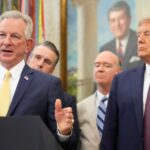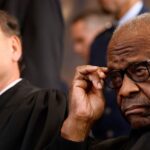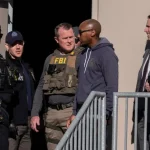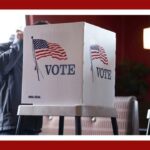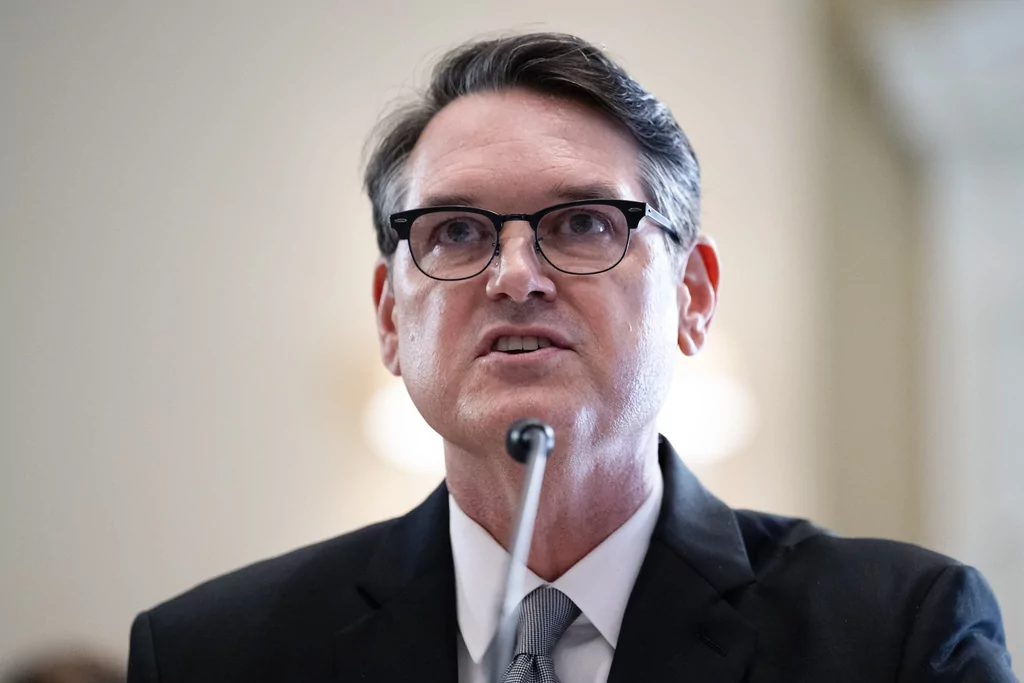
Florida’s top election official is accusing the Biden administration of not being “cooperative” enough as Republican-led states attempt to remove noncitizens from their voter rolls ahead of the 2024 election.
Secretary of State Cord Byrd said in an interview with the Washington Examiner on Wednesday that the Department of Homeland Security’s immigration database would be the best tool he uses to check the citizenship status of registered voters — if it were reliable.
Byrd, who was appointed to his position by Gov. Ron DeSantis (R-FL) in 2022, said Florida is one of a handful of states that uses the DHS dataset, known as the Systematic Alien Verification for Entitlements, or SAVE, database, to see if immigrants have been naturalized.

The database was originally intended for federal and state governments to check whether a person was qualified for certain public benefits, but Florida was among the first states to begin using it about a decade ago to check voter eligibility.
However, Byrd said, it costs money to query the database and can take weeks. He said DHS also does not keep the most up-to-date information in it about who has been naturalized, even as tens of thousands of Floridians gain citizenship each year.
“It’s not properly updated,” Byrd said. “It’s costly, and we have to have the alien registration number for it to give us a positive result, and many times, we get evidence of somebody being a noncitizen, but they don’t have the alien registration number, so even where we can use [the database], we can’t because states don’t always have that information.”
Byrd has since May, when he first testified before Congress on the matter, been imploring DHS to proactively give updated lists to states that show who has been naturalized, but the federal government refuses, he said.
“That’s the only tool we have,” Byrd said. “They’ve pretty much gone radio silent, as far as the Biden administration. They’re not cooperative. They don’t help us.”
DHS did not respond to a request for comment.
Maintaining the voter rolls — that is, keeping a list of voters who are registered and eligible to vote — is a legal responsibility of secretaries of state.
Through this process, some states, including Texas, Virginia, and Ohio, have discovered hundreds or thousands of noncitizens on their voter rolls in recent years despite it being against the law for noncitizens to vote in federal elections. Byrd said that in the last month, his office has on a weekly basis flagged dozens of registered voters who could be noncitizens for counties to then screen and remove from the rolls, if necessary.
In Florida, the vast majority of voters become registered to vote when they obtain a driver’s license or other identification card from the state government. That weeds out most noncitizens, Byrd said, because Floridians need to provide citizenship information to the government agency at that time. If they are a noncitizen, they cannot move forward with their voter registration.
However, if a person registers to vote outside of that process, the applicant merely checks off a box about their citizenship status on a form and signs it, swearing that it is truthful. Federal law prohibits states from asking for documentation of citizenship during this process.
Republicans in Congress have been aggressively pushing legislation that would require voter registration applicants to provide a document proving their citizenship with their application, but Democrats have rejected the push as unnecessary.
In the meantime, secretaries of state must rely on various other state-level tools, such as jury selection reporting and driver’s license data, to check for the citizenship status of registered voters. In Florida, if election officials identify a potential noncitizen, that person is afforded due process before he or she can be removed from the voter registration list.
Better access to DHS’s SAVE data would make the entire process of checking citizenship more efficient, Byrd said.
“We need [DHS] because only the federal government naturalizes citizens,” Byrd said. “They know every single person they naturalize.”
Despite instances of noncitizens showing up on voter rolls, studies and data from the conservative Heritage Foundation, the Department of Justice, and think tanks such as the CATO Institute have all shown that it is exceedingly rare for noncitizens to cast votes.
CLICK HERE TO READ MORE FROM THE WASHINGTON EXAMINER
Byrd said that this year, among its roughly 13.5 million registered voters, Florida authorities have arrested two people over voting as noncitizens. Florida officials discover possible cases for prosecution during their routine voter roll checks when they see that a potential noncitizen may have at some point cast a ballot, Byrd said.
Democrats have pointed to the infrequency of noncitizens voting to argue that it is not an issue worth addressing and would only cause disenfranchisement. Republicans, meanwhile, say that bolstering states’ ability to screen for citizenship would build voter confidence in election security.
